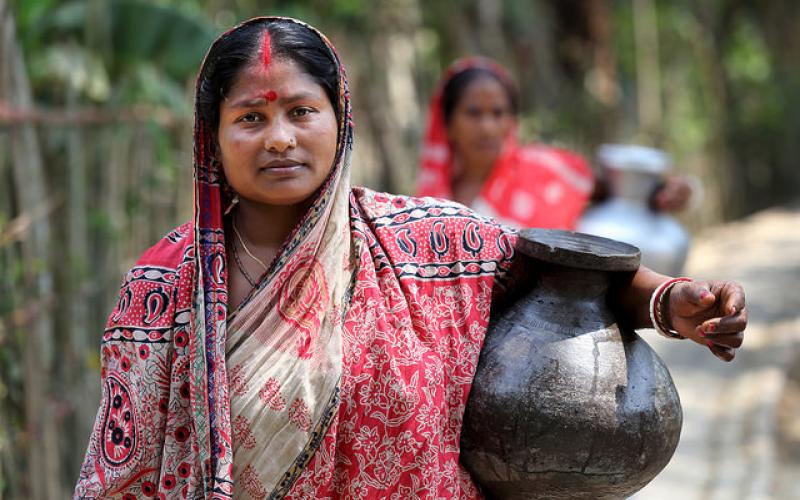
A guest blog by Ranjitha Puskur, WorldFish senior scientist and Elspeth Bartlet, communications specialist. The WorldFish Building Coalitions, Creating Change workshop in 2012 brought together donors, researchers and practitioners on gender and development to discuss a gender transformative approach to agricultural research in development. The workshop was a major step forward in putting this concept into practice.
Recommended publications
- Gender strategy brief: A gender transformative approach to research in development in aquatic agricultural systems
- Transforming aquatic agricultural systems towards gender equality: a five country review
A guest blog by Ranjitha Puskur, WorldFish senior scientist and Elspeth Bartlet, communications specialist.
The WorldFish Building Coalitions, Creating Change workshop in 2012 brought together donors, researchers and practitioners on gender and development to discuss a gender transformative approach to agricultural research in development. The workshop was a major step forward in putting this concept into practice.
What were the lessons learned? One lesson to emerge is that WorldFish needs organizational changes if we want to effectively adopt this new way of thinking and working. As one of our participants put it, “if you want to adopt a gender transformative approach, the first thing you need to transform is yourself.”
At WorldFish, we need to start by making a strong case to our own colleagues and build their commitment and understanding. A clear explanation is needed of the vision behind the gender transformational approach and how it contributes to our institutional and program goals. Case studies and other evidence should be used to demonstrate that this approach can help ensure our research has a lasting impact. A theory of change must be developed, one that plots the steps we will take along the way to achieve this.
A capacity-building plan will equip staff with the awareness, capability and skills to drive this agenda forward. We don’t all have to become gender specialists, but we need to be aware of what is required of each of us and be able to access the relevant expertise as needed. By deciding who needs to do what, we can also develop accountability for delivering gender transformation. This accountability could be encouraged via performance assessments.
WorldFish needs to form a new set of strategic partnerships and collaborations with others from the agricultural sector and beyond. The transformational approach to gender inequality is a new concept for us, but others – particularly in the health sector – have been working with it for some time. We have a lot to learn from them. We would not expect to change norms and attitudes alone, but work with other organizations active in this area.
